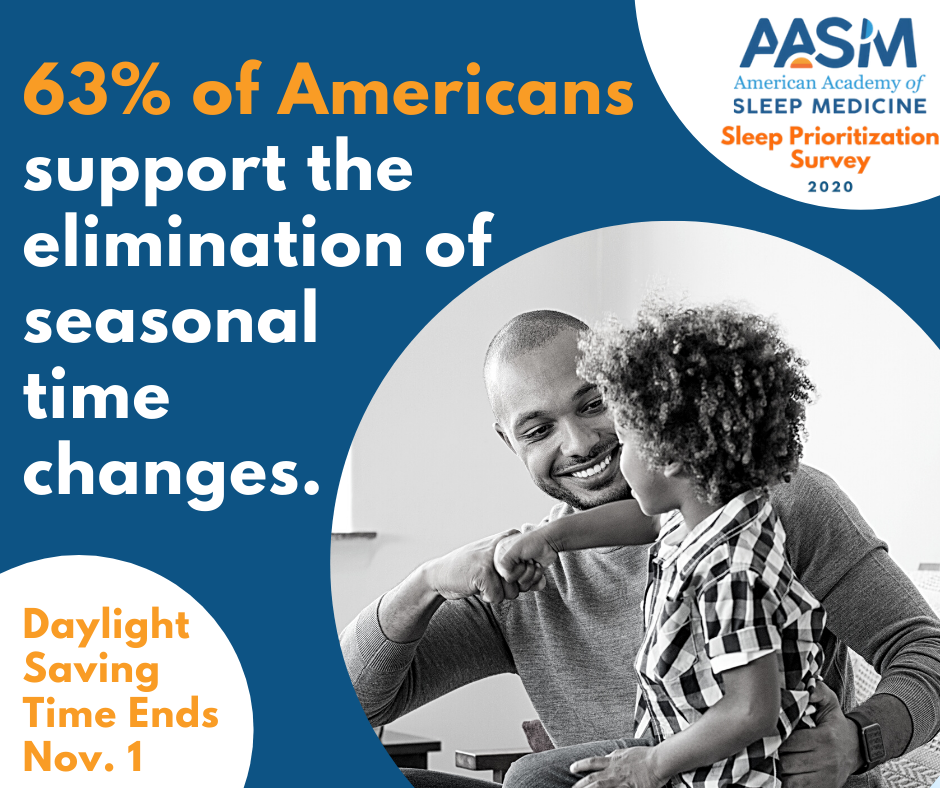On November 2 we turned our clocks back one-hour, signaling the end of daylight saving
time. While most of us are accustomed to the biannual time change, evidence suggests there are downfalls to the ritual of “springing forward and falling back.” Which is why in September and October, we helped our client the American Academy of Sleep Medicine (AASM) bring awareness to their position statement which supports eliminating seasonal time changes for the benefit of public health and safety. The position statement outlined the various effects of time changes, which range from increased risk of stroke and hospital admissions to sleep loss and more, arguing that standard time more closely aligns with the daily rhythms of the body’s internal clock.
To drive attention to the AASM’s statement, LCWA drafted a pitch with highlighted results from the AASM’s July 2020 survey, which found that a majority of Americans (63%) are also in support of the elimination of seasonal time changes in favor of a national, fixed, year-round time.
The pitch also touted that the AASM’s statement has been endorsed by more than 20 organizations including the National Safety Council (NSC), the National Parent Teacher Association (PTA) and the World Sleep Society. Legislators have come out in support of a fixed, year-round time in recent months, including Florida senators Marco Rubio and Rick Scott, who recently introduced a bill to keep daylight saving time in place through the fall of 2021. The bill has been placed on the Senate calendar and remains a timely and attention-grabbing angle as the AASM’s statement continues to gain traction.
LCWA distributed the pitch via Newswise and pitched the AASM’s statement to national consumer and health media. As a result of our direct-to-editor outreach, we secured high-impact interviews for key AASM spokespeople with the Washington Post and Healio.
The statement received extensive national coverage, generating more than 280 million impressions. Notable placements included:
Online:
o Inside Edition, Medscape, CNN, CNET, Chicago Tribune, Smithsonian Magazine, Associations Now, Bustle, Vice, Business Insider, Healthline, Prevention, USA Today, HealthDay, Vox, Everyday Health and WebMD.
Print:
o St. Louis Post-Dispatch, The Kansas City Star and The Des Moines Register.
Television:
o HLN, WJBK, KTTV, CBS Sacramento, WGNand Good Morning America.
Radio:
o KYW-AM, WLS-AM, KPLA-FM and AM 900 Hamilton’s News Talk Leader (CHML).
These results show that the debate for/against seasonal time changes continues to be a hot topic of interest for the media and American public.

